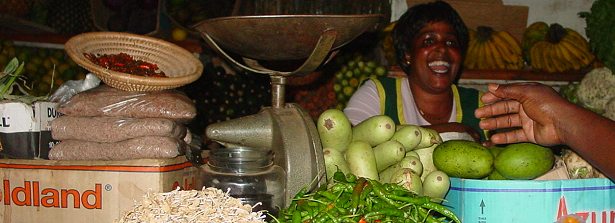Six projects granted within Food & Business GCP-2

Six research proposals have been awarded funding within the second Call of the Food & Business Global Challenges Programme (GCP). The theme of the Call, which NWO-WOTRO developed together with the F&BKP, is ‘inclusive business models for food security and regional trade for food security’.
There is an urgent and growing need for new knowledge that contributes to new insights, policies and practices to meet food security challenges. To meet this need, the Food & Business Global Challenges Programme (GCP) is executed by NWO-WOTRO in collaboration with the F&BKP. GCP-funded research projects aim to generate research-based advanced understanding of emerging key issues in food security.
In the coming months, the following six GCP-projects will start their research activities with a new grant:
Local and International business collaboration for productivity and QUality Improvement in Dairy chains in SE Asia and East Africa (LIQUID)
Main applicant: Dr W.J.J. Bijman (Wageningen University)
Consortium: Agriterra (The Netherlands), FrieslandCampina (The Netherlands), Sokoine University of Agriculture (Tanzania), International Livestock Research Institute (Kenya)
Improved collaboration among local and international businesses in value chains can lead to higher productivity and improved quality. This project provides insights and practical tools to strengthen inclusive dairy chains in SE Asia and East Africa, with the aim to improve product quality and farmer income.
Supermarket supported area-based management and certification of aquaculture in Southeast Asia (SUPERSEAS)
Main applicant: Dr S.R. Bush (Wageningen University)
Consortium: WorldFish (Bangladesh & Malaysia), Royal University of Phnom Penh (PRR) (Cambodia), Can Tho University (Viet Nam)
Coastal aquaculture in Southeast Asia affects resources and communities across coastal landscapes, but environmental management only focuses on the farm level. This project will determine how aquaculture farmers can improve their environmental and social performance by scaling up management to beyond the farm and what market and financial support they can receive for doing so.
Improving livelihood by increasing livestock production in Africa: An agribusiness model to commercially produce high quality insect-based protein ingredients for pig, chicken and fish industries
Main applicant: Prof. M. Dicke (Wageningen University)
Consortium: Zetadec (The Netherlands), Sanergy (Kenya), ICIPE (Kenya)
Poultry, pig and fish farming are the fastest growing agribusiness activities in East Africa. However, the high costs of feed greatly hampers profitable gains for farmers. The research will explore the potential of insects to supplement feed. Furthermore, awareness and market opportunities in production of insect-based protein for the livestock industry will be created.
Information transparency system as a low-cost scalable solution to farmers’ access to credit and services in Ghana
Main applicant: Prof. B.W. Lensink (Wageningen University)
Consortium: People4Earth Foundation (Ghana), Agricultural Extension (The Netherlands)
This project examines whether the introduction of a farmer information platform improves cocoa farmers’ access to finance. By closing information asymmetry between financial institutions and farmers, the former is more likely to offer financial services to the latter. Technology is expected to reduce know-your-customer and transaction costs of reaching out to smallholders.
Women Food Entrepreneurs in Kenya and Burkina Faso. Building inclusive business models for food security in the city slums of Kisumu and Ouagadougou
Main applicant: Dr N.R.M. Pouw (University of Amsterdam)
Consortium: Netherlands Agro, Food and Technology Centre (NAFTC) (The Netherlands), Institut de Recherche en Sciences de la Santé, located in Ouagadougou (Burkino Faso), Centre for African Bio-Entrepreneurship (CABE) (Kenya), Victoria Institute for Research on Environment and Development (Kenya), Koninklijk Instituut voor de Tropen (The Netherlands)
Boosting women’s production, processing and trading of quality foods in Africa’s growing cities can improve food and nutrition security of vulnerable populations. This inter- and trans-disciplinary project examines opportunities and constraints, field-tests innovative food production and processing methods, and designs inclusive business models for women food entrepreneurs.
Following the food chain. Inclusive agricultural business models for food security in Ethiopia, Ghana and Kenya
Main applicant: Prof. E.B. Zoomers (Utrecht University)
Consortium: St. Mary’s University College (Ethiopia), Solidaridad (Kenya & The Netherlands), Fair & Sustainable Advisory Services (The Netherlands)
There is considerable foreign investments in African food production for world markets. This may serve global food security, but can have negative consequences when external agribusiness displace local smallholders without alternative income sources. This study investigates which different business models manage to achieve inclusive growth in Ethiopia, Kenya and Ghana.
More details on the projects and the applicants will be published soon in the Research Projects section of this website.





